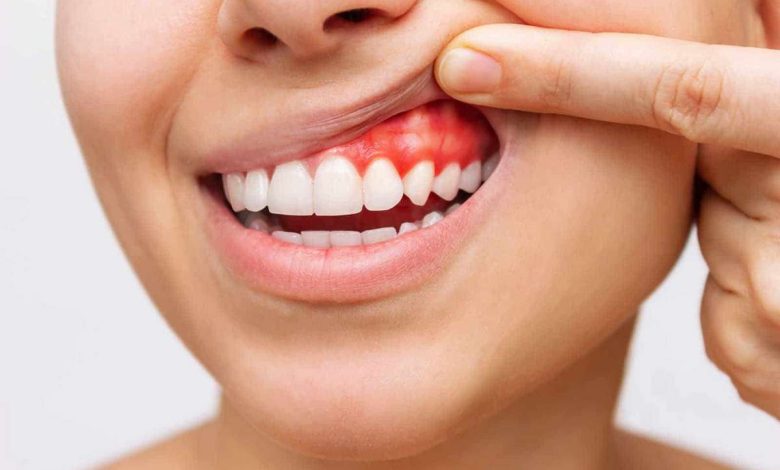Toothache: What's it, causes, symptoms, diagnostics, treatment, prevention

Toothaches; Pain – tooth or teeth
Toothache: What's it?
Toothache is an unpleasant sensation, arising from various problems, associated with teeth and gums. This symptom can be caused by a variety of reasons., ranging from caries and inflammation of the gums to serious dental diseases. Toothache can be severe, pulsating, blunt or cutting, and it can greatly affect the patient's quality of life..
Causes of toothache
Toothache is often the result of tooth decay (caries) or infection or irritation of the tooth. Caries is often caused by poor oral hygiene.. It can also be partially inherited. In some cases, toothache can be caused by grinding or other trauma to the teeth..
Sometimes pain, felt in the tooth, actually caused by pain elsewhere in the body. It's called referred pain. For Example, ear pain can sometimes cause toothache.
The main causes of toothache:
- Caries: Poor dental care can lead to cavities, that affects tooth enamel and dentin, causing pain.
- Gingivitis (gingivitis): Poor hygiene can cause gum disease, which may be accompanied by pain.
- Pulpit: Inflammation of the dental pulp, which contains nerves and blood vessels, can cause severe pain.
- Periodontitis: Inflammation of the tissues around the tooth can cause chronic pain and even infection..
- Syndrome of vegetative dystonia: The nervous system can affect the condition of the teeth and cause pain.
- Heart attack: may include jaw pain, neck or toothache.
Toothache symptoms
Toothache symptoms can vary depending on the cause.:
- Pain: Acute, throbbing or dull pain in a tooth or gum.
- Sensitivity: Teeth can become sensitive to cold, hot, sweet or sour.
- Swelling of the gums: Inflammation of the gums may be accompanied by swelling and redness..
- Bad breath: Inflammation and infection can cause bad breath.
When to see a doctor
If you have a toothache, should see a dentist, especially if:
- Pain lasts longer 1-2 days.
- The pain is severe and interferes with normal life.
- There are accompanying symptoms, such as swelling, fever or local swelling.
Questions, which the doctor may ask
Your dentist may ask you the following questions to better diagnose and determine the cause of your toothache:
- What is the nature of the pain? Describe the pain: sharp, pulsating, blunt?
- When the pain started? Whether there was a previous injury or other factors?
- Sensitivity to cold/warmth/sweet? Is there any sensitivity when eating or drinking?
- Are there associated symptoms? For Example, edema, bad smell or bleeding?
Diagnosis of toothache
To determine the cause of a toothache, a doctor may do the following tests:
- Visual inspection: The doctor will assess the condition of the teeth and gums.
- Roentgen: Allows you to see the condition of the teeth and roots.
- Sensitivity tests: Allow to determine, which teeth are sensitive to different stimuli.
Treatment of toothache
The treatment of toothache depends on the cause of the pain.. Self-referral to a dentist or medical professional for an accurate diagnosis and appropriate treatment is an important step in relieving pain..
Consider the main methods of treating toothache:
- Removal of caries: If caries is detected, which is the main cause of pain, the dentist can remove the affected tissues and then fill the tooth.
- root treatment (endodontics): Inflammation of the dental pulp, which causes pain, pulp removal and root canal filling may be required.
- Professional teeth cleaning: If the pain is caused by plaque or tartar, the dentist will perform a professional cleaning, to remove accumulated deposits.
- Treatment of gum disease: For gingivitis, the dentist may prescribe flushing, antiseptic solutions and other methods, to relieve inflammation and improve gum health.
- Elimination of injury: In case of tooth injury, important to investigate and, if necessary, perform reconstruction of damaged tissues.
- Painkillers: To relieve pain and discomfort, the dentist may prescribe anti-inflammatory and pain medications.
- Applying cold and warm compresses: Cold compresses can help reduce inflammation, but warm – relax muscles and improve blood circulation.
Home Treatment
You can also take the following steps to relieve toothache:
- mouth washing: Warm salt water can help relieve inflammation and soreness.
- Using an antiseptic solution: To treat gums and reduce inflammation.
- The use of painkillers: On doctor's recommendation.
Prevention of toothache
Recommended to prevent toothache:
- Maintain good oral hygiene: brush your teeth twice a day, use dental floss and mouthwash.
- Visit the dentist regularly for checkups and teeth cleanings.
- Avoid overeating sweet and sour, what can cause caries.
Toothache is a symptom, which should not be ignored. If you have a toothache, consult a dentist to determine the cause and prescribe the necessary treatment. Remember, that regular visits to the dentist and proper dental care can help prevent many diseases and problems with teeth and gums.
Used sources and literature
Benko KR. Emergency dental procedures. In: Roberts JR, Custalow CB, Thomsen TW, eds. Roberts and Hedges’ Clinical Procedures in Emergency Medicine and Acute Care. 7th ed. Philadelphia, PA: Elsevier; 2019:chap 64.
Page C, Pitchford S. Drug use in dentistry. In: Page C, Pitchford S, eds. Dale’s Pharmacology Condensed. 3rd ed. Philadelphia, PA: Elsevier; 2021:chap 28.
